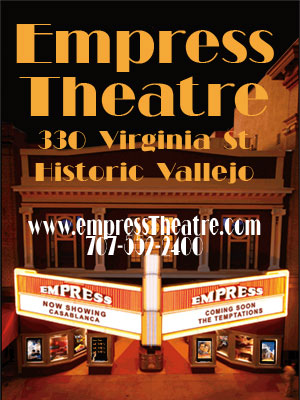 ESTATE PLANNING AND TRUSTS: ONE SIZE DOES NOT FIT ALL
ESTATE PLANNING AND TRUSTS: ONE SIZE DOES NOT FIT ALL
Quite often when a client calls requesting an estate plan, rather than asking specifically for that, they’ll simply say: “I need a trust.” I’ve always found this statement rather intriguing. After all, if you felt you had a health issue, such as a sudden bout of abdominal pain or indigestion, would you go straight to the doctor and order an appendectomy? Probably not. While you may have your suspicions as to the proper resolution for your medical problem, it’s usually best to withhold the self-diagnosis in favor of allowing the professional to fully evaluate your circumstances, and make an appropriate recommendation. In the same way, while a trust may be the estate-planning tool that works in most situations, it is not always right to assume that it’s the proper approach in every situation.
At its most base level, a trust is simply a legal tool for holding or managing property. However, as noted below, the ability to control property through a trust can have many side benefits.
A trust is significantly distinguishable from a corporation, limited liability company “LLC” or similar entity. It’s important to note that a trust exists as a “property management tool” for the individual(s) or entity that formed the trust (the settlor), whereas, the corporation or LLC is a separate and distinct legal “person”, for all purposes, from its founders.
A trust can be revocable or irrevocable. A revocable trust, commonly referred to as a living trust, offers tremendous flexibility and may be cancelled or revoked, in whole or in part, or amended at any time during the settlor’s lifetime. An irrevocable trust cannot be revoked either for the duration of the trust, or for the period specified in the trust. Irrevocable trusts are utilized less frequently as most settlors wish to maintain control and ownership, regardless of how indirect, over property placed in the trust. Therefore, irrevocable trusts are often used to effectively “gift” property to a trust. While this may have implications for gift tax purposes, it can also decrease the size of the settlor’s estate, thereby reducing estate taxes, where applicable.
Here are some considerations as to why you may or may not want to include a trust as part of your comprehensive estate plan:
Tax Considerations
As noted above, an irrevocable trust, properly implemented, can potentially reduce estate taxes by lowering the total value of the gross estate. A basic revocable trust, on the other hand, does not help you to reduce or avoid any estate taxes, unless it is properly written to include certain tax avoidance techniques such as a marital deduction trust, or bypass trust, which can save substantial estate tax dollars for families over time.
Many have been misled into believing they should rush into creating a trust just to avoid taxes. However, it is important to note that for the year 2012, the federal estate tax exemption limit is $5,120,000 per person, and there is no state estate tax in California. This means that, in 2012, a married couple would have to have assets in excess of $10,200,000 before any estate tax would be owed at all. If you are in this category and estate taxes are still a concern, then there are other estate planning tools you need to be thinking about that will not be addressed in this article. For the rest of us, it should be obvious that tax considerations alone do not provide the motivation to create a trust, at least for 2012. Note that, at this writing, the exemption is scheduled to drop to $1,000,000 per person – or $2,000,000 per married couple – in 2013. Most practitioners believe Congress will take action to raise this limit to some amount between $3.5M and the current level before the new rate becomes effective, as has been the case in the past. However, gambling on what Congress might do does not seem like a safe estate planning strategy.
Avoidance of Probate
Probate is the legal process that occurs after death, whereby an individual is appointed by the court to ensure payment of the final expenses and distribution of the assets of the decedent’s estate. It is most often a very time-consuming and costly process. Under California law, assets that have been transferred to the trust, and certain others that are considered to be “non-probate” assets (Those assets that are held in joint tenancy, community property with right of survivorship, and “pay on death” accounts, which automatically transfer upon the death of the decedent to the co-owner, by operation of law), are exempt from probate. Therefore, if a trust is properly funded and maintained as such, the trust will allow the heirs to avoid the time and expense of probate upon the settlor’s death.
This last point is particularly important. Many people have a false sense of security after creating a trust through the use of fill-in-the-blank, generic methods such as online sites or, worse yet, attending seminars that are set up in hotels and put on by “trust mills” that are passing through town. These methods are problematic for many reasons. The two main concerns are: a) each individual’s situation is different, and it is tantamount to malpractice to use the same documents for everyone without fully considering that individual’s circumstances and specific needs, and b) neither of these methods guarantees that the trust will ever be funded with the assets. Simply put, you can form a trust, but if the assets are never put into the trust, it is a completely wasted effort. Without question, at least 50% of the trusts that our firm has looked at over the years, that have been created through one of these two methods, have never been funded. Because the settlor’s properties, financial accounts and other assets were never moved into the trust, the document is useless and a probate will be required upon the settlor’s passing regardless of the trust’s existence (Assumes the settlor has a minimum amount of assets subject to probate).
Privacy
A will that is entered into a probate proceeding becomes a public document. Likewise, all court filings of the assets, liabilities and information regarding distributions during the course of a probate also become accessible to public scrutiny.
A trust, on the other hand, is only accessible to outside eyes on a limited basis. It can become public in the event that the trust comes under the jurisdiction of the court for some reason. Certain others, such as bankers and financial agents, may require access to certain portions of the document for verification purposes, on an as-needed basis.
Will Substitute
Having a will that leaves all of your property to your heirs or other designees does mean that you do not need to have a trust. However, having a trust does not mean that you will not also need to have a will. In fact, every estate plan should include a will regardless of whether or not a trust is created. In the case where a trust was created, the attorney typically creates a “pour-over” will. The purpose of the “pour-over” will is to ensure that if any property is inadvertently left out of the trust, this will “pours over” the property into the trust upon the death of the settlor. So long as the non-trust, probate assets do not exceed the statutory limits (currently at $150,000) a probate should not be necessary.
Costs
The cost of creating an estate plan that includes a trust is higher than one with only a simple will. In addition to the cost of the document itself, supporting documents such as Grant Deeds and change of ownership reports for real and personal property, financial accounts and other potential assets can significantly add to the cost of the estate plan. These costs are often justified based upon the value of the estate and the estate planning objectives and goals of the settlors.
Other Considerations
With any estate plan it’s important to review and update the documents as required. This can be somewhat easier to do when there is not a trust involved. For example, the standard trust includes a list of the property that was placed into the trust. A will does not. Therefore, the trust Schedule of Assets should be updated as properties are bought and sold, or financial institutions are changed. Where an estate plan includes only a will, updates will likely be required less often such as when children or grandchildren are born, or there are other reasons to modify beneficiary provisions.
Often when real property is refinanced, certain financial institutions will not make loans to properties that are held in trust. It may be necessary to take the property out of the trust for the duration of the loan refinance. Always be sure to check that you are not violating the conditions of any property mortgage by transferring your property into a trust.
Conclusion
A trust can be a critical component of your estate plan. However, it’s important to make an informed choice before deciding to include a trust as part of your estate plan. Please don’t get the impression that our firm is opposed to the inclusion of trusts in our client’s estate plans. In fact, just the opposite is true. For most of our clients, a trust is the right way to go. It’s just that the “one-size-fits-all” approach to estate planning is reckless and raises serious concerns that individuals are not receiving proper advice based upon their specific needs. Don’t be afraid to ask tough questions. After all, you’re paying for the time. The issues are too important, and you deserve the right answers that apply to you – not somebody else.
Stephen Gizzi is the Managing Partner of Gizzi & Reep, LLP, a general practice law firm in Benicia, where he practices as an attorney, mediator and arbitrator. In addition, Steve serves as a Judge pro tem with the Solano County Superior Court and is also on the Faculty of the National Judicial College where he teaches Civil Mediation.
 Stephen Gizzi is the Managing Partner of Gizzi & Reep, LLP in Benicia. He is an attorney, mediator and serves on the faculty of the National Judicial College in Reno, NV. The information in this article is intended to be general in nature and does not constitute legal advice. Consult your own legal counsel for your particular circumstances.
Stephen Gizzi is the Managing Partner of Gizzi & Reep, LLP in Benicia. He is an attorney, mediator and serves on the faculty of the National Judicial College in Reno, NV. The information in this article is intended to be general in nature and does not constitute legal advice. Consult your own legal counsel for your particular circumstances.














































